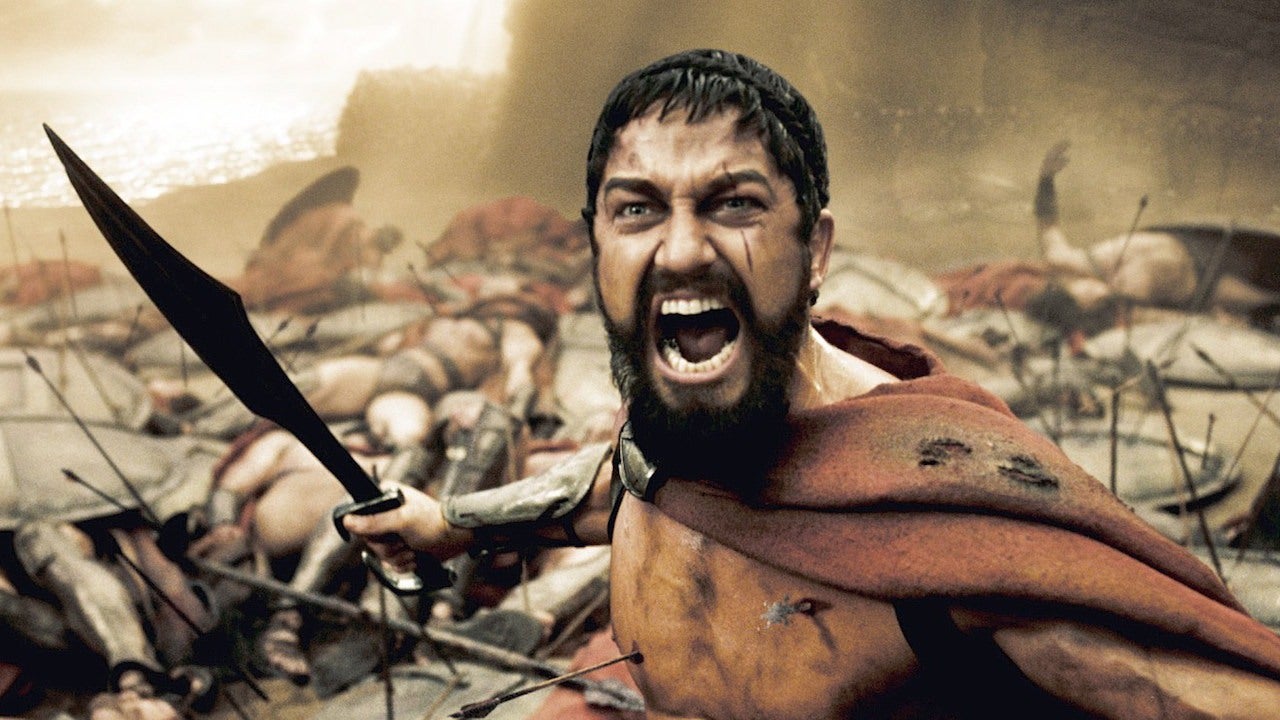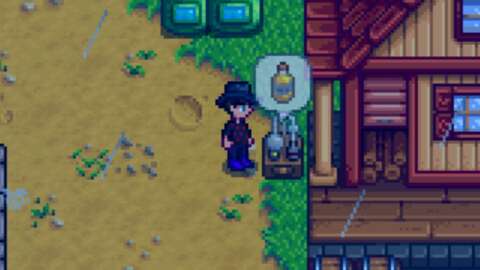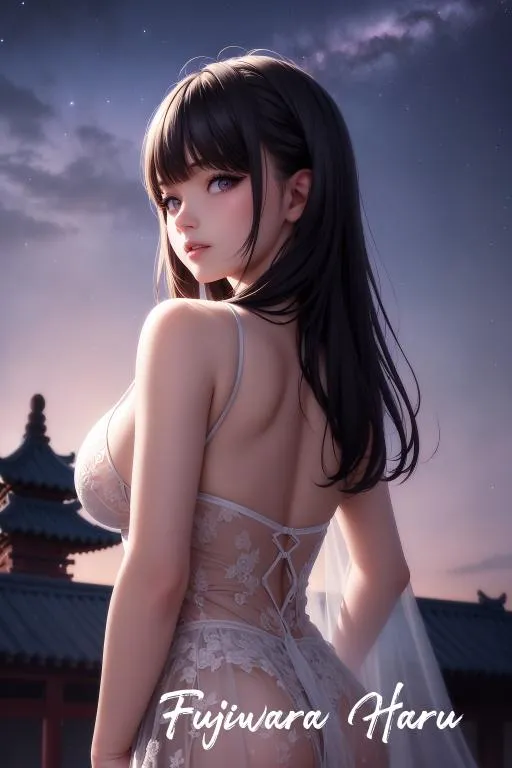Sundance, the world's largest independent film festival, is celebrating its 40th edition this year, and there's a lot to reflect on. Over the past four decades, everything from Clerks to Little Miss Sunshine to Get Out have premiered on at the Park City, Utah, and this year boasts some starry entries too.
There's Freaky Tales, starring Pedro Pascal and from Captain Marvel directors Anna Boden and Ryan Fleck; two Kristen Stewart films in Love Lies Bleeding (read IGN's review here) and Love Me; Richard Linklater's Netflix film Hit Man: Steven Soderbergh's latest, Presence; and much, much more. It's a massive lineup, but luckily, we got to sit down with Sundance Senior Programmer John Nein to help us comb through it.
As Hollywood finds itself at a crossroads, with tried-and-true tentpole trends proving less reliable than usual, now's as good a time as any to talk about the strength of indie films and what Hollywood can learn from festivals like Sundance. Below, Nein talks about that, his favorite picks from the 2024 festival, what Sundance's role is in the industry today, and so much more.
We're talking kind of around the tailend of the festival this year. We've gotten the lay of the land of the movies. I know I'm going to ask you to basically pick among your children, but any personal favorites this year?
John Nein: That is picking among my children. It's true. I came into it always the same thing, appreciating the mix between discovery and filmmakers who we've shown before.
I love the [Steven] Soderbergh film. I thought the idea of continuing to explore a language of cinema and tell a ghost story or a presence story – it's called Presence (read IGN’s review here) – and it's a ghost story told entirely from the point of view of a ghost. And I was like, “wow.” I mean, he just continues to do innovative work. And then there's so many discovery films. I love a film called Didi, which is about a Taiwanese American kid who grew up in Fremont, California, loving coming-of-age stories, but wanting to tell them from the point of view of where he grew up in Fremont with the people that he knew, which were first-generation children of immigrants. It's funny. It's got such an energy. He's such a talented filmmaker. His name is Sean Wong.
I just thought there were also so many interesting films that dealt with mishmash of genre. Like Freaky Tales (read IGN’s review here) is a film that’s told in four parts about Oakland in 1987, but it's such a mash of pulp and comedy, anthology horror, old Testament wrath. I mean, it's such a creative film from – again, going back to that idea of a mix between discovery and new filmmakers – Ryan Fleck and Anna Boden, who were here 20 years ago with their first short film that they made together, Gowanus, Brooklyn, and then they go on to make Half Nelson and Mississippi Grind and Sugar, Captain Marvel. And then they come back with an indie feature, Freaky Tales, that I think is about something really special, and yet it's a kind of cool genre mishmash. So there's a ton of stuff that you go through the programming cycle and you want to feel jolted into believing in the freshness of a movie, and that's what happens with some of these movies.
I want to talk more about the lineup and the submissions in particular. I think there was a little bit of trepidation before the announcement lineup, basically, because we're coming off two strikes and we're still dealing with the pandemic, but I think you guys had a record-breaking amount of submissions this year. What was it, like 17,000 or something?
John Nein: That's right, yeah. If you count short films and features, it was a huge, and it was a record-breaking number, but we have a team of really great programmers who have a great system and we made our way through and we found what I think were some really special films within that. But yes, it was a very daunting task to go through those submissions.
It is daunting, but it's also kind of impressive. I mean, does that tell you something about the enduring strength of Sundance, 40 editions in?
John Nein: Absolutely, and the enduring strength of indie storytelling. And I think there's always so many dimensions to a story, and while it's true that there was definitely a sense of production coming to a close or a pause for a certain amount of time, but from the standpoint of the program, I think that the program, what I am hearing this year from the industry – the very industry that could have been the people who are anticipating or wondering what to anticipate – is that it's the strongest program they've seen for a long time. And so we never know that going in. We have an intuitive feeling that we're really proud of the program, but I was literally talking to someone just before I came here about how the industry, I think, is looking at the program this year and finding a lot from the standpoint of discovery and also acquisitions. So yeah, I think it's a really strong program despite some of those adversities.
What major trends did you see emerging in both the submissions and what would become the lineup?
John Nein: I think there's definitely some continuing trends. Let's say what we're responding to and have been for a number of years is not surprising, which is that there's almost a relish in genre, broadly speaking. Not just horror, but horror science fiction sort of comedy, basically. I think that the fact is that the market is certainly favorable towards distinctive genre work. What's cool about that, though, is that filmmakers are using it in a really artful, expressive way. And so you have people using genre to ask questions and to deal with race and to deal with really interesting social questions. That's a trend that's for sure continuing. And we see creativity in genre even like I mentioned, science fiction.
I think one of the most inventive films that we're showing in the festival is Love Me (read IGN’s review here), which also has almost a gimmicky tagline. It's a buoy that falls in love with a satellite told over a billion years, and yet it's so smart about the way that it asks questions about AI, machine learning, being in consciousness. And it's very funny, and it has Kristen Stewart and Steven Yeun, and it, I think, has this formal innovation to it that just tells me that independent filmmakers are seeing ways to use genre in incredibly creative ways that also still ask questions.
And it goes back to, I think, a lot of films that we could cite from the last few years too. And you do see also in this space a continuing trend towards biographical work that's certainly true in nonfiction. We saw so many interesting films this year about people like Frida Kahlo, Sue Bird, Tammy Faye Bakker, Mavis Beacon, someone who I think many of us didn't necessarily know, and yet so many other people came of age learning typing from this software. And this is a film (Seeking Mavis Beacon) that goes to seek out who is Mavis Beacon, so almost a different kind of biographical film. And the band Devo, a biographical film about them.
And then you even see that in fiction as well. There was a biopic about Rob Peace called Rob Peace made by Chiwetel Ejiofor. It's a fascinating story about a real person. I mean, that's a trend for sure. I think the way that we look at it is we're trying to find those works that allow us to open up the history that they're dealing with in a way that is deeper, more sophisticated, that lets us look at history through a different perspective. So I would say if you look at Devo, sure, it's a story of a band. Maybe some people know it only from their more outward Whip It or something like that. What I see is a film that looks at the ability of art and music to be responsive to its time. Devo is a band that came out of Kent State, and it was a band that asked questions about how art could be responsive to society, and that's where the whole idea of devolution came. So sure, it's a biographical film, but it's a film that is really, really about everything that Sundance should be about, which is how is art responsive to its time.
You mentioned the genres that we keep seeing pop up, and I think this is a really, really strong year for docs. I think two of the biggest movies – Will & Harper and Super/Man: The Christopher Reeve Story – I mean those were both documentaries and I think there's a ton on the lineup. Was that a conscious choice for you guys to really lean into that this year?
John Nein: It wasn't a conscious choice to lean in, and in fact, had you seen the vast pool from which we were drawing, it may not even feel like leaning in. It just is that that is a reality of what's being made right now. I think that in those cases, in the ones that I mentioned, it really is a question of trying to find the films that speak more broadly to themes and ideas and questions about society and something that really exploits the possibilities that longform nonfiction has to tell deeper stories, to bring different perspectives. I think of a film that we showed called Sugarcane, which I was doing the Q&A of that film, and that's maybe the most moving experience I've ever had at Sundance. It was incredible. It's a story about the residential schools in Canada that forcibly removed children from their homes, indigenous children. And the story is framed through both investigative journalism but also personal experiences. And that was true of one of the filmmakers. And so to me, it's an example of the form itself being different and more resounding, I guess, emotionally, intellectually than other forms that are out there, investigative journalism or maybe some of the things that you would see in mainstream media. It's like, this is what we can do when we devote longform nonfiction to important subjects.
I also want to talk to you about the festival experience at large because you guys have kind of been forced to evolve over the past few years. You had the all-digital festival and then you had last year's hybrid, and I feel like this year was fully back in action, but you still have the digital screenings. So I'm curious how you guys balance prioritizing that in-person experience that's so special while also making the films available for people who can't get out here.
John Nein: Yeah, I mean, you said it and it is exactly that. It's a balance. The notion that the online festival creates accessibility, we're a place that is not easy to get to. It's a costly festival for some people. And so the notion that our competitions are available to all around the country, to those who buy those passes packages, is really part of what we're about in terms of creating accessibility. That is true of industry as well too. We certainly have a huge number of American press and industry who come to the festival internationally as well, and yet we know that there are opportunities created for the films by virtue of industry who are watching them through online passes and packages too. So on one hand, you're creating that accessibility, and on the other hand, we're being responsive to an industry that is rightly pointing out that there is a huge energy and vitality to the way that the film meets the world. That first time in person in a theater with an audience, with the press industry and attendance, there's nothing like that. We've always known that, and we have evolved that hybrid model in order to try to balance those two things as best we can.
I also want to talk to you about Sundance's role in the movie business at large, because if you look at movie business in general, it's kind of at this weird place. Like I said, we had two strikes last year. We’re in this time where tentpoles are kind of not doing so hot, and Sundance is still this beacon for indie filmmaking. So what do you think the industry can learn from Sundance's enduring success?
John Nein: Yeah, I think it's a really good question because I think in the end, I've been here for long enough to see the ups and downs of the industry and to see other moments where we've had challenging circumstances. We certainly do at this time as well for a lot of different reasons, but maybe the sort of brightest beacon is that we have always known that there is a connection between artist and audience that is so clear at this festival, the way that the films are being received, the enthusiasm that there is for them. To me, it is an indicator that at the fundamental level, there is an appetite for these films. There is a deep desire amongst audiences to hear personal stories, independent stories, the kinds of creativity and innovation and pushing the form that we put a showcase together at the festival. That's what we believe in. That is kind of the foundation.
And then when you look at, yeah, there are some questions that we have to ask in terms of the industry and release models and distribution and financing, and these are tricky things, but I do think that most of the industry and the artists, the community, the indie community itself, I think they approach those questions from that sort of step back and say, “but do we believe that there's value to the work and that the audience is there?” And then we just got to figure out the rest.
What is Sundance's role in 2024 and is it different than it was 40 years ago, or 20 years ago?
John Nein: The sense that the goal has always to be responsive to the changing landscape and to maintain our sort of fixed star, which is how do we create opportunities for the independent storytellers? How do we facilitate the industry stuff? That's always been our goal. Probably what's different are the intricacies of that and the way that we have to recognize what's happening and change a little bit how it is that we create those opportunities. We have to recognize what's happening in the landscape in order to do the thing that we know we're here to do, which is to uplift those stories and to create that point of connection with the audience and with the industry.
I think what I hear from folks that I talk to is that in this world where there are challenges in theatrical and in release models, it has never been more important to have festivals that are there in order to showcase the work in order to create those opportunities. And then maybe in some ways, in order to highlight work in a landscape where there's quite a lot, there's a lot of noise. And so I think that we go into this year asking questions about how we'll evolve next year and how we'll try to see what's happening in the market, try to see what's happening with how films are being made or in some cases not being made, and we'll continue to adjust the festival in ways that we think will foster opportunities for the filmmakers.
Not to put you on the spot, but when you talk about how you want to evolve, are there any specific areas in which you do want to evolve?
John Nein: Yeah, I mean, I think for example, when we look at the acquisitions market, when we look at the way in which films have visibility, and I'm thinking particularly within press, particularly within audience response, how is that read online, for example, not on screenings, but in social media and things like that. When I think of those things, it's very much with an eye toward how can we make sure that there's more visibility and press coverage for some of these films? How can we recognize that we may have to find ways to talk to the industry about the films in a better way, or that I think it's about creating opportunity and it's about recognizing how that's changing and trying to compensate for that.
But it's also about, for example, I would say we look at even films that are in release, they've been acquired, or maybe they already had a distributor when they came to Sundance. What are the challenges that those films have, and is there a way that Sundance Institute – not necessarily just during the period of the festival – but what's our relationship to the work that goes out into the world? What's our relationship to creating visibility even when it's being released by another company or things like that? What's our relationship to trying to get ourself unstuck from some of the things that are problematic right now? We just had what we called a think tank of companies and producers and philanthropic interests and organizations, and it was really for the purpose of coming together and trying to create some momentum towards solutions for this particular moment when there are some challenges. So when you ask what is it that our role in that would be, it's beyond simply the festival, and it's the things that we ask ourselves about what the wider institute can do as well. Yeah.
Is there anything you've seen this year that's got you like, “yeah, I feel really good about the movie business and feel really good about what we're doing”?
John Nein: Oh man. That's tough. Yeah, I mean, it's weird because I feel like there were films that deal with interesting questions, and yet my hope is that they will be popular films. They will be well-received. [I’m] thinking of a film like American Society of Magical Negroes, which I think is a really smart, biting satire that asks tough questions, but it is a romantic comedy. It is very funny. It is very witty and clever and charming, frankly. So to me, it's a film that I think sort of squeezes into the national dialogue and conversation in an interesting way. It just made me happy. And yet I am asking questions as well too. And so just seeing how well that played was really, really heartening.
Even some of our international films, there was such an amazing response for a Mexican film that we all really love on our programming team called Sujo. Just to see the audience response to that. Not everyone flocks towards international language films, and to see that one get a standing ovation was amazing. There's a film called Black Box Diaries that has some really difficult subject matter, and yet at the end, the filmmaker was leading the audience in a karaoke of I Will Survive, which was a pretty amazing moment to see. So yeah, I think those heartening moments are everything that is the sort of best quality of being in person. Those are the things that happen only when you're here in person.







